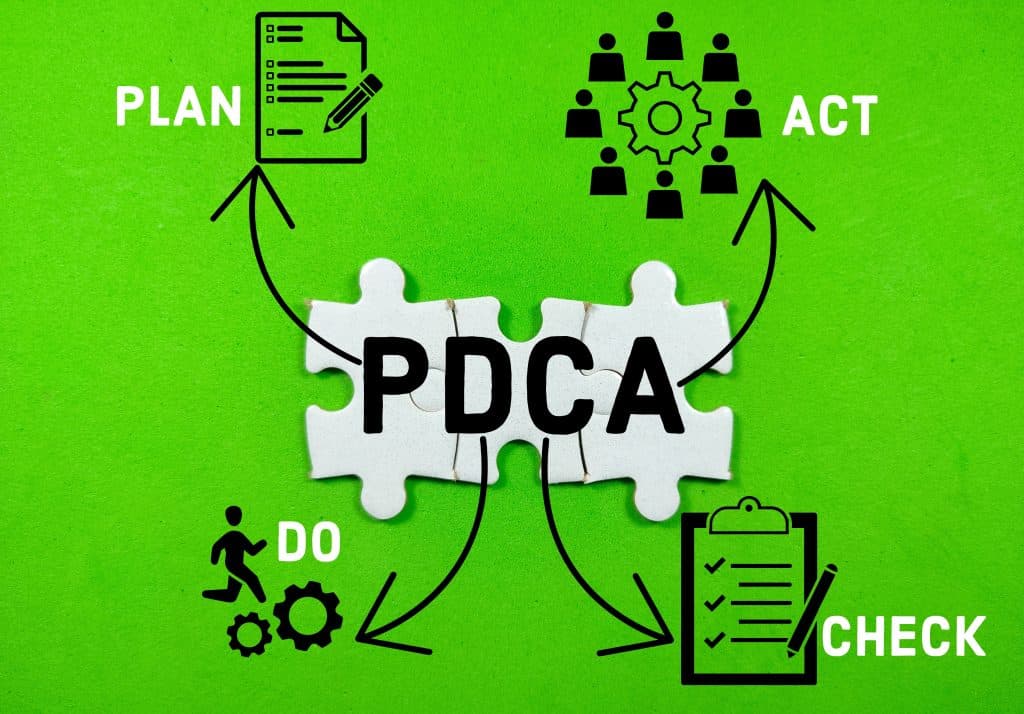Continual improvement is an ongoing process of identifying, analyzing, and improving processes, products, and services to enhance their quality, efficiency, and effectiveness. It involves a systematic approach to identify areas that require improvement, developing and implementing solutions, and then evaluating the results of those solutions. Continual improvement is not a one-time event or a specific project, but rather an ongoing effort to continuously enhance and refine processes and operations.
Continual improvement is indeed a crucial key to sustainable business growth. In today’s competitive marketplace, businesses that fail to improve and innovate risk becoming stagnant and losing their competitive edge. Here are a few reasons why continual improvement is so essential for consistent business growth:
- Better products and services: By continually improving products and services, businesses can provide their customers with better quality, more efficient, and more innovative offerings. This can lead to increased customer satisfaction and loyalty, as well as attracting new customers.
- Increased efficiency: Continual improvement can help businesses streamline their processes, reduce waste, and improve efficiency. This can lead to cost savings, increased productivity, and ultimately, increased profitability.
- Competitive advantage: Businesses that are constantly improving and innovating have a significant competitive advantage over those that are not. They can stay ahead of the competition by providing better products and services, improving efficiency, and adapting to changing market conditions.
- Employee engagement: Continual improvement can also help to engage employees by providing them with opportunities for growth and development. This can lead to increased motivation, job satisfaction, and loyalty.
- Adaptability: Continual improvement helps businesses to adapt to changing market conditions and customer needs. This can help them to stay relevant and avoid becoming obsolete.
Plan-Do-Check-Act (PDCA)
The PDCA cycle is a continuous process that is repeated to drive continuous improvement, and it can be applied to any process or system in an organization, regardless of its size or complexity. The PDCA cycle encourages organizations to focus on continuous improvement, problem-solving, and innovation, leading to increased efficiency, effectiveness, and customer satisfaction. It is a problem-solving and continuous improvement methodology that involves four steps:
Plan: This involves identifying the problem or opportunity for improvement, setting goals and objectives, and developing a plan to achieve them. In this stage, the team analyzes the current situation, defines the problem or opportunity, and identifies the root causes.
Do: This stage involves implementing the plan, which means carrying out the actions identified in the planning stage. This may involve making changes to processes, products, or services.
Check: This stage involves monitoring and evaluating the results of the actions taken in the “Do” stage to determine whether they have been successful in achieving the goals and objectives set in the “Plan” stage. Data and feedback are collected and analyzed to measure the effectiveness of the changes made.
Act: Based on the results obtained from the “Check” stage, this stage involves taking action to standardize, refine, or revise the processes, products, or services. The team identifies further opportunities for improvement, updates the plan, and starts the PDCA cycle again.
The concept of continual improvement is rooted in the principles of Quality Management System (QMS), Total Quality Management (TQM) and Lean Six Sigma, which emphasize the importance of continuous improvement to achieve business excellence. Continual improvement is a critical element in the success of businesses, as it enables organizations to stay competitive, meet customer needs, improve efficiency and effectiveness, and achieve business goals.
Conclusion
In summary, continual improvement is absolutely essential for business growth as it helps businesses to improve their products and services, increase operational efficiency, gain a competitive advantage, engage employees, and adapt to changing market conditions.

